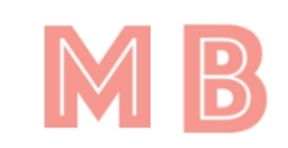writers on writing
Writers on Writing is Writing NSW regular conversation with a writer or industry professional about the writing craft, industry insights, and their own practice.
What do you think about writers drawing on their own identity and lives to create parts of their characters?
I don’t think I know any writers who don’t draw on their own identities and lives to create characters. That’s not to say that every fiction writer is just creating faintly disguised pieces of their own memoirs, but if you want authentic characters that feel real, you have to be willing to draw from real life. My character Ekuah from Bad Love is not based on me – none of the things that happened to her in the book have happened to me – but the emotions she feels and who she thinks she is as a young woman, are definitely rooted in similar thoughts and feelings I had as a young woman myself. Those parts of me were then a jump off point for Ekuah and the development of her character, until she became an entirely separate person. I don’t think I could have brought her to life without pulling from my own internal world.
Are your character histories fleshed out before you start writing their story, or does the backstory develop with the narrative?
For me, more often than not, a backstory develops with the narrative. I’m not a great planner when it comes to fiction to be honest, it takes the fun out of discovering the story for me. And then a good friend of mine – Dr Eloise Faichney, a lecturer in Media and Communications at University of Melbourne – noted something interesting she’s learned in teaching creative writing: some people write with a map, and some people write with a compass. It blew my mind! Because I definitely write with a compass – I know where the story is going, I just don’t quite know how I’m going to get there. And the same goes for my character histories – I know who they are as people, and then I start to dig back into what their motivations might be, what role their upbringing plays in their decision making, and why certain things are more important to them than others. It builds and reveals as the narrative continues, which makes the writing bit much more fun, and allows me to peek behind the curtain when I need to.
After your debut novel Bad Love, will you continue to focus on stories about complicated love and relationships?
When I look back on the short stories I’ve written and had published in various forms, they all do feature some element of a complicated relationship – whether romantic or otherwise, so I do always end up gravitating towards those stories. My next book still centres complex relationships, but in a completely different way. I’m a romcom girl at heart though, I like a messy conclusion and when everything isn’t tied up into a neat bow, so I’m sure I’ll continue to write about difficult relationships and the elusiveness of love, somehow!
What do you find most appealing about writing complicated characters?
For me, writing a complicated character is like putting together a puzzle with a thousand pieces, without a clear picture on the box to help guide you towards the final scene. And with puzzles like that, it’s always about where you start. Some people start at the edges, filling out the outline of the character, what they look like, where they live, who they have in their lives. Others begin in the middle like me, looking internally at the character’s motivations, their desires, their sense of themselves and the nature of their relationships with the people in their lives. Once I have those pieces, I think the shape of that character starts to come together. But what’s interesting to me is that a complicated character is unpredictable, can act erratically or make decisions that really frustrate the reader – I love writing them from that perspective because it also requires me as the writer to really dig into them as a character, to peel apart their layers and discover what the cause and effect of their personality is. The perk of that is that I can drip feed clues and inferences to the reader as and when I need to, to help reveal the story of this person at the right pace.
What have you read recently that hasn’t left your head?
Quite a few books are living rent free in my mind at the moment: Son of Sin by Omar Sakr, Before You Suffocate Your Own Fool Self by Danielle Evans, and When We Were Birds by Ayanna Lloyd Banwo. Beautiful books, all completely different, all with complicated, intense characters.
